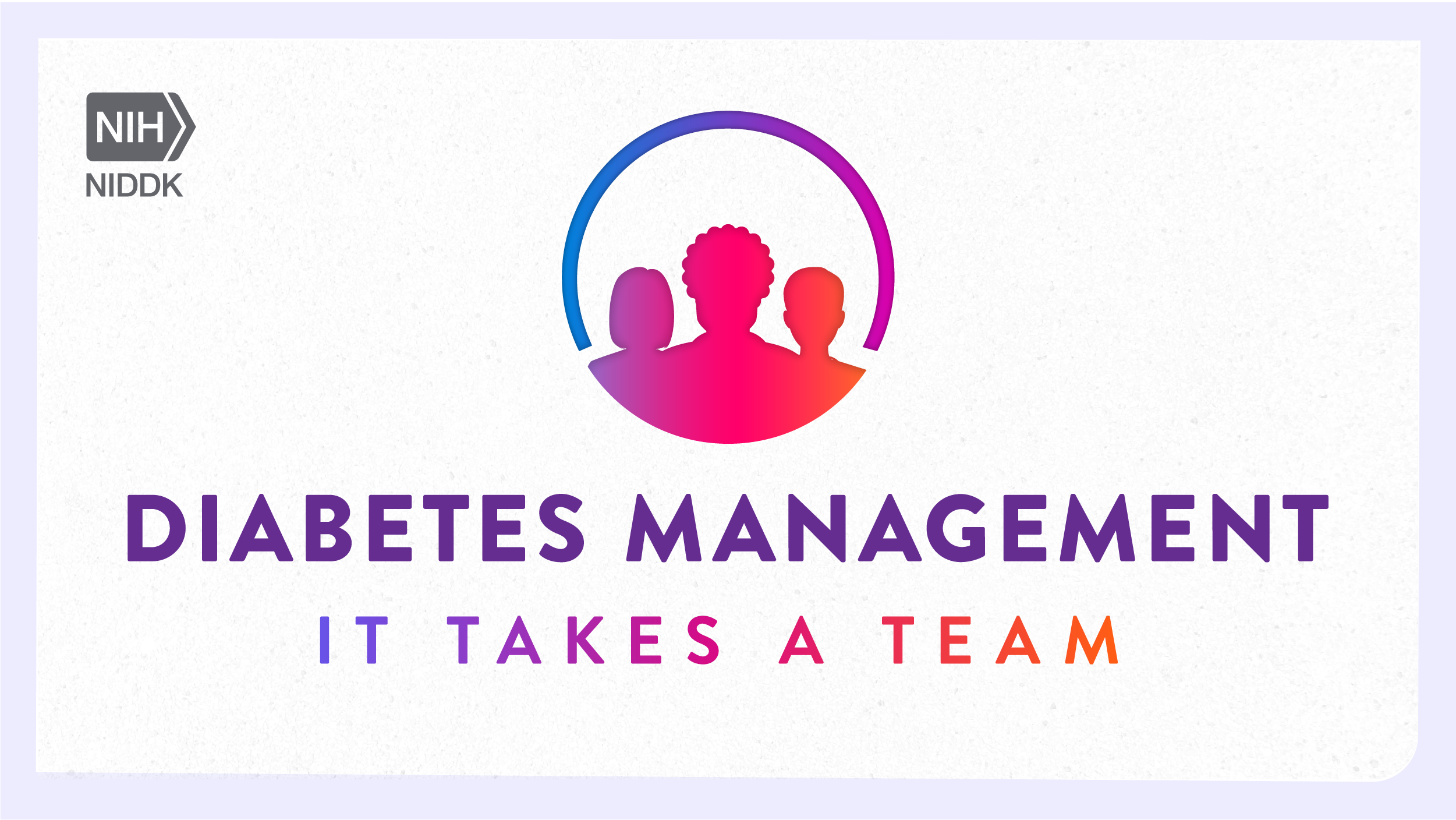National Diabetes Month
Diabetes is a disease that occurs when your blood glucose, also called blood sugar, is too high. It affects about 37 million Americans, including adults and youth. Each November, communities across the country team up to bring observe National Diabetes Month to bring attention to diabetes prevention and management. This year’s focus is managing diabetes by building your health care team.
Managing Diabetes
The National Institute of Diabetes and Digestive and Kidney Diseases (NIDDK), states that you are the most important participant in your diabetes care. However, it does take a team and working with health care professionals who can offer you the personal care you need may help improve your overall health. Listed below are their tips for managing your diabetes:
- Understand the Disease: Learn as much as you can about your diabetes and talk with your primary care provider about how you can get the support you need to meet your goals.
- Start Early: Research has shown that taking action soon after being diagnosed can help prevent diabetes-related health problems such as kidney disease, vision loss, heart disease, and stroke.
- Build Your Team: It really does take a team! A team of health care professionals can tailor your care for your specific Besides a primary care provider, your health care team may include a nutritionist, a certified diabetes educator, or any other health care professionals who can tailor your care for your specific needs.
Management and Prevention Tips
These tips collected from NIDDK, the CDC and Harvard Health are a great start to managing your diabetes. They can also help prevent prediabetes from escalating into type II diabetes. Even if you don’t have either, these prevention tips will help improve your overall health and prevent future health complications!
Step 1: Focus on Small Steps: Making changes to your lifestyle and daily habits can be hard, but you don’t have to change everything at once. It is okay to start small. In fact, focusing on taking small steps can lead to more successful results. Remember that setbacks are normal and do not mean you have failed, the key is to get back on track as soon as you can.
Step 2: Focus on Balanced Nutrition. It is important to avoid severely restrictive, fad diets and instead focus on proper balanced nutrition. Limit red meats, avoid processed meat all together, and choose nuts, beans, legumes, and lean meats like poultry and fish as your protein sources. Eat plenty of fruits and vegetables, especially leafy greens, and choose whole grains and whole grain products over highly processed carbohydrates. Most importantly, avoid processed foods and sugary drinks as much as possible!
Step 3: Engage in Regular Physical Activity. Research shows that exercise helps you maintain a healthy weight, which is very important in preventing type 2 diabetes. This is because excess body fat, particularly if stored around the abdomen, can increase the body’s resistance to insulin. Exercise also helps to lower blood sugar levels and it boosts sensitivity to insulin, which helps keep your blood sugar within a normal range. For the best results, aim to engage in both aerobic exercise and resistance training.
Step 4: Quit Smoking (Or Never Start!) According to the CDC, smokers are 30–40% more likely to develop type 2 diabetes than nonsmokers. The more cigarettes you smoke, the higher your risk for type 2 diabetes. Research also shows that smoking after being diagnosed not only makes diabetes harder control, but it puts you at risk for a wide range of additional health issues.
Step 5: Manage Your Stress Levels. High stress levels that go unmanaged can have numerous negative effects on your health, such as poor sleep quality, weight gain, high blood pressure, etc. Over time, these conditions put you at higher risk for type 2 diabetes. To help manage your stress levels remember to choose positive and healthy methods, such as exercise, mediation, yoga, disconnecting from technology, or spending time in nature.
To learn more about National Diabetes Month and for more information about prevention, click here. This is a great area of focus for your wellness programs, as well. To get access to NIDDK’s National Diabetes Month toolkit and additional resources to share with your employees, click here!








